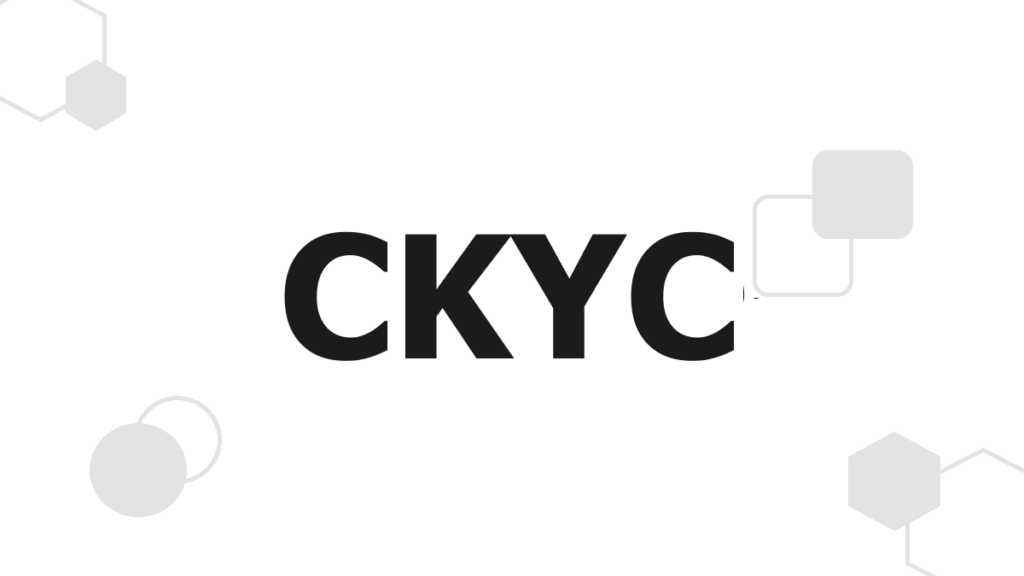Have you ever felt frustrated repeatedly submitting the same documents for KYC (Know Your Customer) verification when opening new bank accounts or investment portfolios?
If you’re an Indian resident, you’re not alone. But there’s good news! CKYC (Central KYC) is here to simplify your financial life.
Customers have to submit their KYC documents while conducting transactions in banks and other non-financial institutions.
That means Aadhaar card, PAN card etc. should be handed over. After examining them, the officials will start our work.
CKYC system
Doing this every time a transaction is done is a hassle. Work also gets delayed. In order to avoid this and to provide speedy services to the clients, the government has introduced the CKYC system.
CKYC
CKYC is the process of maintaining KYC records of clients. It means Central Know Your Customer.
Speed up services
With CKYC, clients are served faster. Financial institutions also have no verification function.
Through this your KYC will be processed and a unique 14 digit number will be allotted. If you mention that number, your transaction will be completed faster.
For example, when you want to open a new account, if you mention the CKYC number, the process can be completed very easily.

CKYC is a Centralized database
CKYC acts as a central repository for storing KYC information of individuals. Eliminates the need for repeated submission of documents while conducting transactions with various financial institutions like banks, mutual funds, insurance companies etc.
Who needs CKYC?
CKYC is mandatory for various financial transactions in India, including:
- Opening new bank accounts
- Investing in mutual funds
- Buying insurance policies
- Availing loans above a certain threshold
How to Get a CKYC Number
The CKYC process is straightforward. You can typically complete it online through participating banks, KYC Registration Agencies (KRAs), or agents appointed by KRAs.
The process involves submitting your PAN card, address proof, and identity proof. Once verified, you’ll receive your unique CKYC number.
CKYC Benefits
- No need to submit KYC documents for verification for financial transactions. Also the process will speed up.
- A 14 digit number will be allotted after completion of CKYC. Through this, there is no need to submit xeroxes of certificates while transacting with various financial institutions. CKYC number is enough.
- Both financial institutions and clients benefit from CKYC. Especially time saving. Customers get fast services.
- Government has introduced CKYC so that financial institutions can run their business efficiently and customers can also get faster services.
- CKYC is accessed by authorized organizations or other notified bodies as per regulations framed by the Anti-Money Laundering Act, Government of India, RBI, SEBI, IRDA, PFRDA etc.
- CKYC is personal past information and therefore not displayed on any website.
- CKYC is used once for life. Should be updated as and when required.
Conclusion
CKYC is a revolutionary initiative that benefits both customers and financial institutions. By simplifying the KYC process, CKYC promotes financial inclusion and fosters a more efficient financial system in India.
FAQs
What is CKYC?
CKYC is a centralized repository of your KYC information across the Indian financial sector.
Is CKYC Mandatory?
While not mandatory for all financial transactions, CKYC is becoming increasingly prevalent in India. Many financial institutions are already leveraging CKYC for faster onboarding, and its use is expected to grow further.
How does CKYC speed up services?
CKYC enables faster service for clients by eliminating the need for repeated submission of KYC documents. Financial institutions can process transactions quickly by referencing the unique 14-digit CKYC number.
What is the benefit of CKYC for clients?
Clients no longer need to submit KYC documents for verification each time they conduct financial transactions. They receive a unique 14-digit CKYC number, simplifying interactions with various financial institutions.
How does CKYC benefit financial institutions?
Financial institutions benefit from CKYC by streamlining their operations and offering faster services to customers. The centralized database reduces paperwork and verification time, enhancing efficiency.
Who has access to CKYC information?
Authorized organizations and bodies notified by regulations such as the Anti-Money Laundering Act, Government of India, RBI, SEBI, IRDA, PFRDA, etc., have access to CKYC information.
Is CKYC information publicly accessible?
No, CKYC information is personal and not displayed on any website. It is accessed only by authorized organizations and regulatory bodies.
How often should CKYC be updated?
CKYC information is used once for life but should be updated as and when required to ensure accuracy and compliance with regulations.
Can CKYC be used for multiple transactions?
Yes, the unique CKYC number can be used for transactions with various financial institutions, eliminating the need for repeated document submissions.
What documents are required for CKYC?
Documents such as Aadhaar card, PAN card, etc., are typically required for CKYC verification.
Why was CKYC introduced?
CKYC was introduced by the government to enhance efficiency in financial transactions, allowing both financial institutions and customers to benefit from faster services and streamlined processes.